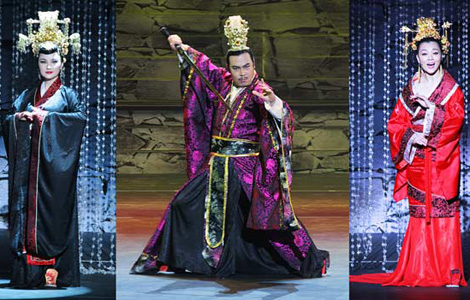Networking relationships in the future
Updated: 2013-11-18 07:40
By Zhang Chunyan in London (China Daily)
|
|||||||||||
|

 |
Mutual benefit and not criticism and mistrust should be the crux of the relations that Western nations forge with China, says Stephen Perry, a leading British businessman and an old China hand.
"China is always in transition and will be so for another 30 years or so. It is important to pay heed to what the Chinese leaders are saying, because this gives a fair inkling of the country's future moves," says Perry, the chairman of the 48 Group Club, an independent business network committed to promoting links with China.
Although the 65-year-old businessman and managing director of London Export Corp has been a regular visitor to China since 1972, he still continues to be amazed by China's transformation.
"What is amazing is that China has changed its people's economic situation, developed a market economy, but still retained its core principles of sharing and socialism," Perry says.
However, there has been a shift in China's priorities during the past decade, and the onus is now more on stimulating the domestic economy and less on exports. "China's leadership has reiterated that economic development and sustainability are their top priorities. This is indeed a refreshing sign."
Perry's comments come against the backdrop of the Third Plenum of the 18th Communist Party of China Central Committee, held in Beijing, that discussed comprehensive reforms.
"China needs to take more steps toward a market-based economy and policymakers should manage the transition process smoothly," he says.
At the same time, Perry admits that it is a tall task. "By creating a manageable welfare state where business and not the taxpayer is the main source of funds, China can become important and unique to the rest of the world," he says.
Perry, who grew up with stories from China, says his mission is to create more business opportunities for British and Chinese companies. The 48 Group Club currently has more than 600 British and Chinese members, both at corporate and individual level.
Member companies and institutions in the group vary in size from multinationals to small firms. They encompass several sectors, including industry, commerce, government, education, sports, culture and law. Prominent members include high-level politicians, diplomats, academics and groups focused on improving cultural relations.
Perry says his fascination for China comes from his father, Jack Perry. The elder Perry was part of the Icebreaker group to China in 1953, which was instrumental in forming bilateral ties between China and the UK.
John Boyd Orr, the first director-general of the UN Food and Agriculture Organization, led the Icebreaker group, while the elder Perry was the mission organizer. Among the team members was Joan Robinson, a distinguished Cambridge economist.
"It was a tumultuous time because many Western nations had not accepted the establishment of the People's Republic of China. Western visionaries, such as my father, who believed in trade and interdependence, were in a minority in the West," Perry says.
The trip to China itself was tough. It took the team seven days to fly to Hong Kong, at a time when people in Washington "were trying hard to stop people going to China" and the Cold War was threatening world peace. The team overcame all kinds of obstacles over three days before finally reaching Beijing.
The group pioneered mutually beneficial relations and signed several trade agreements with China. The 10-day journey was remembered as the historic Icebreaker Mission, which led to the 48 Group Club's establishment and for long-term trade relations with China.
In 1972, the younger Perry boarded a plane to China for the first time with his father. Traveling to the country, he saw for himself the poverty and the hard life of farmers.
The China trip was followed by a visit to Washington and for detailed discussions with Henry Kissinger, then national security adviser to US president Richard Nixon. "Kissinger and his team grilled us extensively in several aspects relating to China," he says.
That trip, Perry says, helped them expand business and also further Sino-US trade ties.
"During those days, people did not pay too much attention to China. Now everyone does, because China is important to global business," Perry says, adding that this year marks the 60th anniversary of the historic Icebreaker Mission.
As an old China hand in Britain, Perry remains confident in China's economic growth and future. "China's sustainable development is obviously serious and will make huge strides in the next decade."
But he also notes some challenges that China is facing. Corruption is a major bugbear, he says. "China's leaders must recognize that money has corrupted China and affected some people with power."
Related Stories
RQFII program 'turning point' for China, Britain 2013-11-14 10:52
Experts welcome China-Britain financial co-op 2013-10-16 13:53
Province launches culture center in Britain 2013-10-04 08:26
Britain-China tie brings "tremendous opportunities" 2013-07-02 16:34
China-Britain currency swap agreement to boost market confidence 2013-06-24 09:53
Today's Top News
Boeing airliner crashes in Russia, 50 killed
Lanzhou takes lead to curb car use
EU, China in right direction
Bringing China's best minds home
Abe busy in ASEAN at Beijing
China police nab 4 drug suspects
President Xi meets Dutch PM
Decisive market tackles overcapacity
Hot Topics
Lunar probe , China growth forecasts, Emission rules get tougher, China seen through 'colored lens', International board,
Editor's Picks

|

|

|

|

|

|





